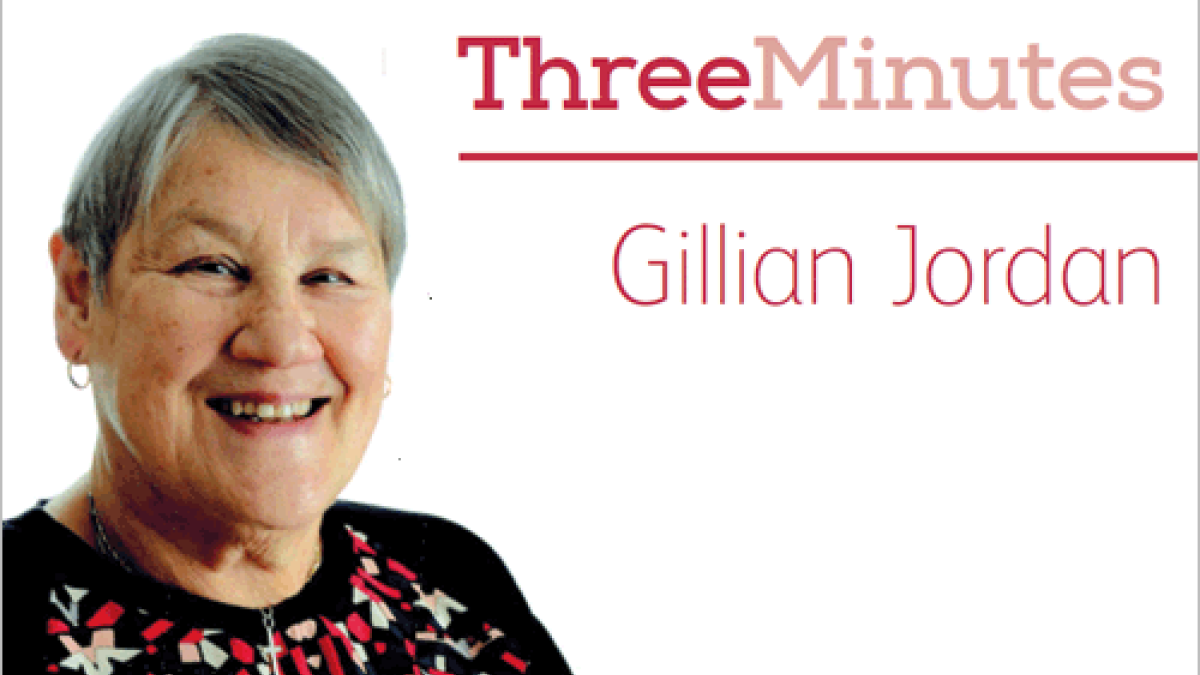Retiring from physiotherapy practice does not mean that life slows down, as Gillian Jordan discovered.

Tell us about your voluntary work.
I am a member of the Barnet Seniors’ Assembly in north London. At Older People’s Day last October we held a day conference where I distributed Physio Works leaflets and talked about physiotherapy. It was good when the CSP bus arrived and lots of delegates practised getting on and off the bus and sought more advice. I also chair the Barnet Providers’ Group, which is made up from representatives from organisations providing facilities and activities for older people.
We discuss how best to use the funding available and share experiences. I’m on the committee of East Finchley Altogether Better, which tries to involve the local community more in a wider range of activities and to identify and include older lonely residents. I am a trustee of the Private Physiotherapy Educational Foundation, which awards grants for research and funding to members studying higher degrees or attending conferences to present their work. I also belong to the CSP Retirement Association.
Can physiotherapists make a difference after retirement?
In lots of ways! We are consumers and need to make the physiotherapy voice heard. Get involved: join your local GP practice’s patient participation group or your local HealthWatch if you live in England, for example. You should also ensure your local GP practice has leaflets on the current Physio Works and any other CSP campaigns. Care is increasingly taking place in the community so ask about provision for physiotherapy, particularly for carers who would benefit from expert teaching on how to best help partners and relatives.
We could avoid a lot of collateral damage if every carer of someone who had a stroke was to receive advice from a physiotherapist on how to keep themselves safe.
You trained in the 1960s – has physiotherapy changed much in the interim?
Almost beyond recognition! Back then we could only treat patients referred by doctors and actually received instructions for the treatment. It was all very formal, we were addressed by our surnames and uniform codes were strictly adhered to. A few years after I qualified I began to find physiotherapy boring as I didn’t think I was using my brain, so I decided to train as a teacher.
At that time we were gaining more independence in determining treatments and I went on a Maitland course which opened my eyes – at last we were becoming autonomous practitioners, and clinical reasoning enabled us to assess and intervene appropriately and get results. So I returned to clinical work and then set up my own practice, combining it with part-time teaching for more than 20 years, until I finally wrote and ran a master’s programme delivered through computer conferencing.
I understand you damaged your back as a student – did this hold back your career later?
We weren’t taught any lifting techniques other than that one must never drop a patient. On one fateful occasion I helped a colleague lift a patient with MS from his wheelchair to a fixed height plinth and as I lifted his legs he went into an extensor spasm – I hung on and got him on to a plinth but the next day I woke with severe sciatica and eventually had a laminectomy.
I recovered from that, finished my training, and it didn’t interfere with my career until about 10 years ago when, after abdominal surgery, I developed severe pain in both legs which an MRI revealed to be adhesive arachnoiditis with some of the dye, Myodil, used for the myelogram before the operation in 1964, still present in my spinal cord. So the last few years have been difficult as my walking is affected.
How do you relax?
Unfortunately not as actively as I would have liked, but I swim regularly, do a daily crossword, belong to book groups, play Scrabble, socialise and sing in a choir. I’d recommend the University of the Third Age too. I also have two small grandchildren who are a constant joy and I visit them and my daughter as often as possible.
Number of subscribers: 0
